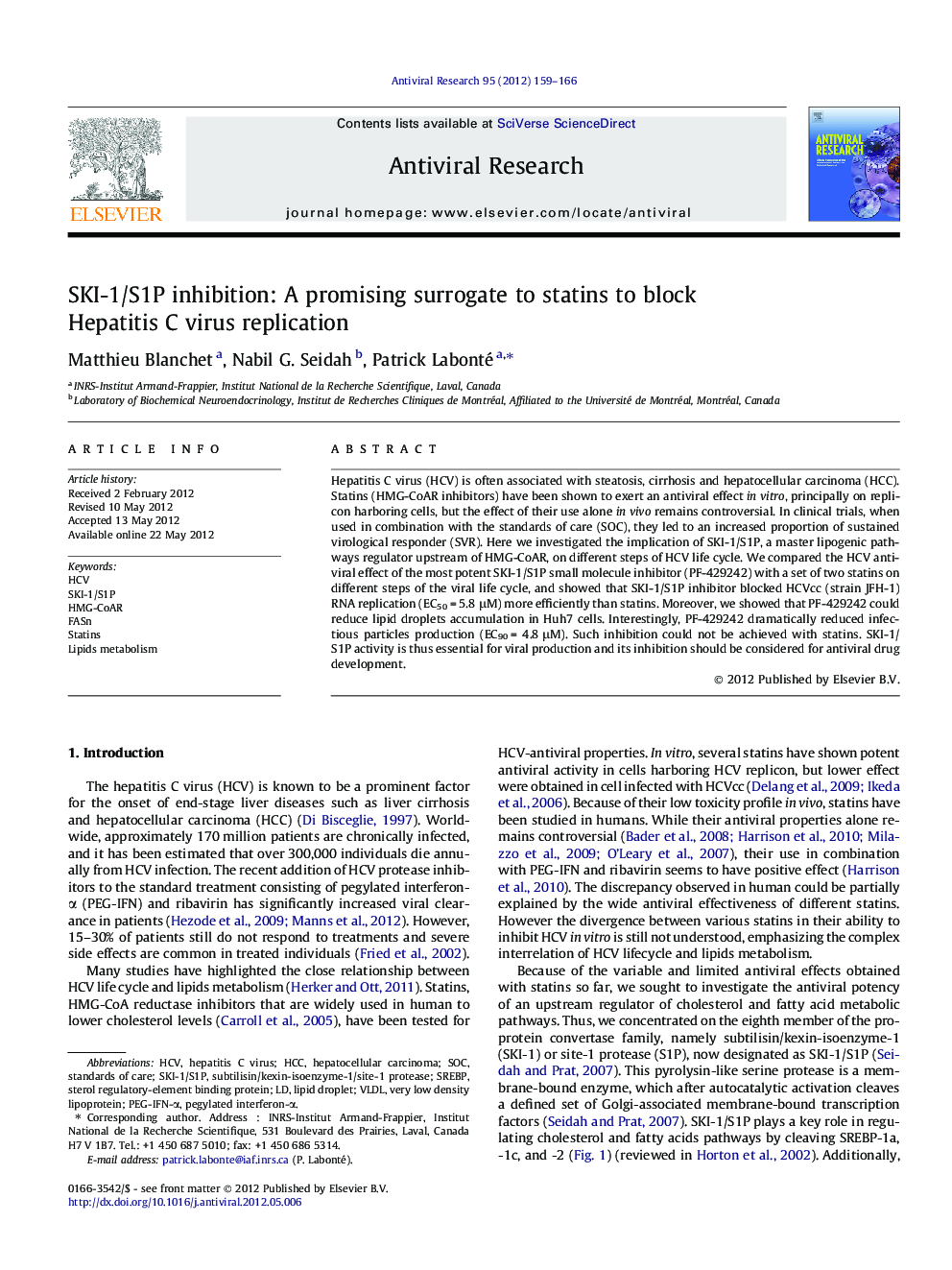| Article ID | Journal | Published Year | Pages | File Type |
|---|---|---|---|---|
| 2510097 | Antiviral Research | 2012 | 8 Pages |
Hepatitis C virus (HCV) is often associated with steatosis, cirrhosis and hepatocellular carcinoma (HCC). Statins (HMG-CoAR inhibitors) have been shown to exert an antiviral effect in vitro, principally on replicon harboring cells, but the effect of their use alone in vivo remains controversial. In clinical trials, when used in combination with the standards of care (SOC), they led to an increased proportion of sustained virological responder (SVR). Here we investigated the implication of SKI-1/S1P, a master lipogenic pathways regulator upstream of HMG-CoAR, on different steps of HCV life cycle. We compared the HCV antiviral effect of the most potent SKI-1/S1P small molecule inhibitor (PF-429242) with a set of two statins on different steps of the viral life cycle, and showed that SKI-1/S1P inhibitor blocked HCVcc (strain JFH-1) RNA replication (EC50 = 5.8 μM) more efficiently than statins. Moreover, we showed that PF-429242 could reduce lipid droplets accumulation in Huh7 cells. Interestingly, PF-429242 dramatically reduced infectious particles production (EC90 = 4.8 μM). Such inhibition could not be achieved with statins. SKI-1/S1P activity is thus essential for viral production and its inhibition should be considered for antiviral drug development.
► Inhibition of the lipogenic pathways regulator SKI-1/S1P limits HCV propagation. ► HCV antiviral effect of SKI-1/S1P inhibitor is superior to the tested statins. ► SKI-1/S1P inhibition impairs HCV genome replication and assembly. ► SKI-1/S1P inhibition alters infectivity but not secretion of HCV particles.
